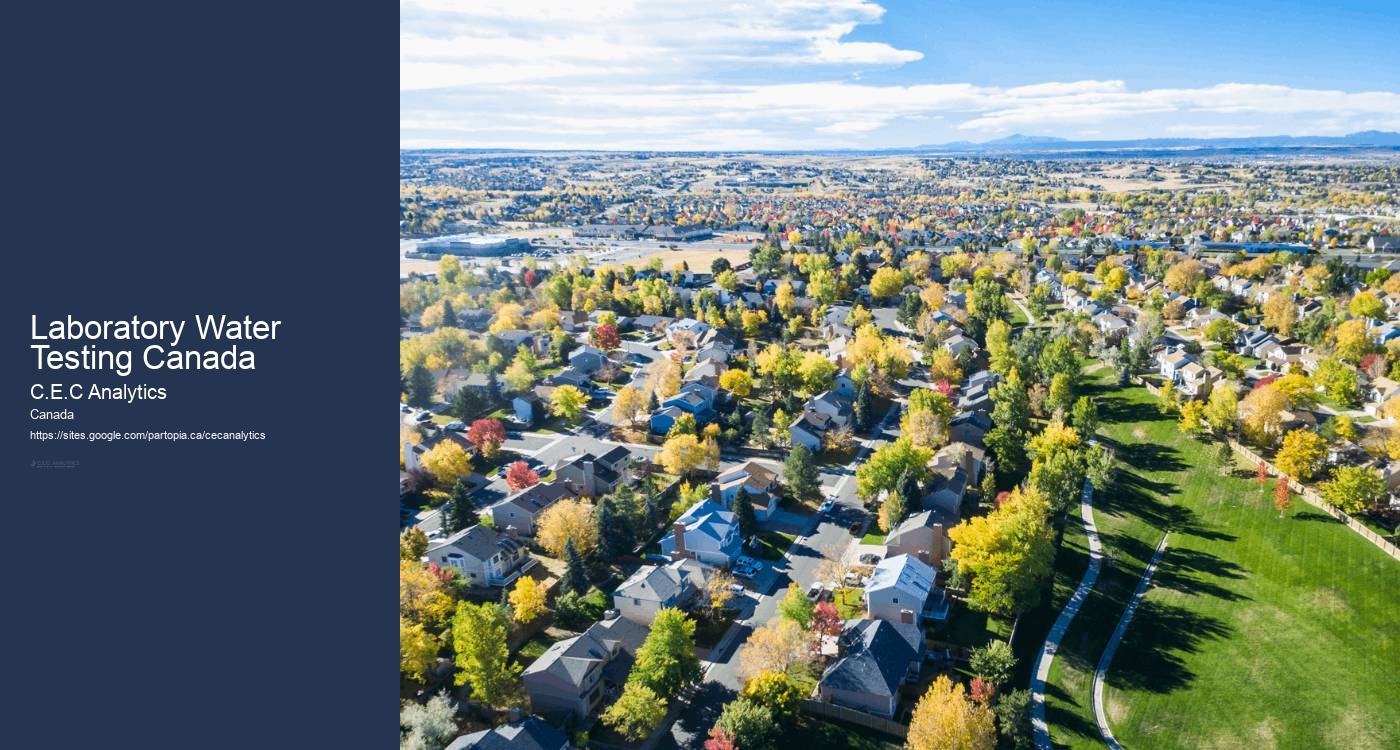

E. With C.
You'll find that our methods for analyzing water and wastewater are designed with the environment in mind. Remote water testing Analytics doesn't just improve water quality; it fosters a healthier, more vibrant community. E. Cyanobacteria testing E. Analytics' findings into their broader health data analytics, enhancing their ability to predict outbreaks and implement targeted interventions.
C. Analytics stays ahead of the curve by employing cutting-edge technology and methodologies. Your leadership is redefining environmental stewardship for the better. By analyzing historical data patterns, C.
It's a call to action, urging you to consider the chemicals you might be washing down your drain or how your community manages its waste.'One Health Through Water' isn't just about identifying problems; it's about fostering a deep understanding of ecosystems and encouraging practical solutions. C. Moreover, you're able to track the source of pollution more accurately, making it easier to hold responsible parties accountable. Wastewater analysis Read more about Laboratory Water Testing Canada here E.
Collaborating closely with municipalities, C. C. Water sampling tools This constant vigilance ensures that any deviation from the norm is caught and addressed swiftly. Analytics, you're not just reacting to issues; you're proactively ensuring the safety and purity of your water, setting a new standard in water health management.
E. You'll see a shift toward real-time data gathering and analysis, making it quicker for authorities to respond to public health threats. This forward-thinking strategy not only conserves water but also protects ecosystems and communities relying on this vital resource. C.


Across Laboratory Water Testing Canada, communities benefit from this synergy, experiencing quicker, more informed public health responses.
C. C. This level of surveillance isn't just innovative; it's transformative, shifting the paradigm from periodic assessment to continuous oversight. E.
Addressing issues before they escalate means you're avoiding costly medical bills and water system repairs down the line. Analytics' real-time data analysis, you're not waiting days or weeks for lab results. This means you're not just reacting to outbreaks, but potentially preventing them from spreading widely.
This means you can take action before pollutants reach critical levels, safeguarding aquatic ecosystems and the communities relying on them. Analytics is setting a new standard in community health protection. The system identified leaks and inefficiencies, leading to a 25% reduction in water loss.
With C. You're not just aiming to keep pace with the evolving landscape; you're setting the pace. We've also embraced renewable energy sources in our facilities, ensuring that our carbon footprint is as low as possible.


It's their collaborative approach. In essence, C. As you consider the implications of these advancements, you'll find there's much to explore about their role in shaping the future of public health and community well-being. E.
C. C.
At the heart of C. This isn't just a matter of inconvenience; it's a severe health hazard. Analytics' revolution in water monitoring are cutting-edge technological innovations that set new standards in precision and reliability. You can now access real-time data from virtually anywhere, making it easier to monitor water quality and make informed decisions swiftly.
Your financial support helps fuel research and the implementation of cutting-edge technologies aimed at preserving our most precious resource. E. Analytics is set to collaborate with local governments and health agencies.
You'll find that predictive analytics allows you to anticipate equipment failures, detect unauthorized water usage, and predict contamination risks with remarkable accuracy. Analytics has had on improving public health through meticulous water quality management. C.
Through their innovative use of technology, they're ensuring that you're not just meeting current standards but setting new benchmarks for the future.

Sampling may refer to:
Specific types of sampling include:
| Part of a series on |
| Pollution |
|---|

|
Wastewater (or waste water) is water generated after the use of freshwater, raw water, drinking water or saline water in a variety of deliberate applications or processes.[1]: 1 Another definition of wastewater is "Used water from any combination of domestic, industrial, commercial or agricultural activities, surface runoff / storm water, and any sewer inflow or sewer infiltration".[2]: 175 In everyday usage, wastewater is commonly a synonym for sewage (also called domestic wastewater or municipal wastewater), which is wastewater that is produced by a community of people.
As a generic term, wastewater may also describe water containing contaminants accumulated in other settings, such as:
To ensure privacy and ethical use of data, you'd adopt strict data management protocols, anonymize participant information, and comply with legal standards. Regular audits and transparency about data use help maintain trust and integrity.
You'll find C.E.C. Analytics' solutions are effective in both rural and urban settings, though their impact may vary due to infrastructure differences. It's all about adapting techniques to meet the area's specific needs.
Your privacy is safeguarded during wastewater-based surveillance because it analyzes community-level data, not individual data. This means they can't trace information back to you personally, ensuring your personal details remain confidential.